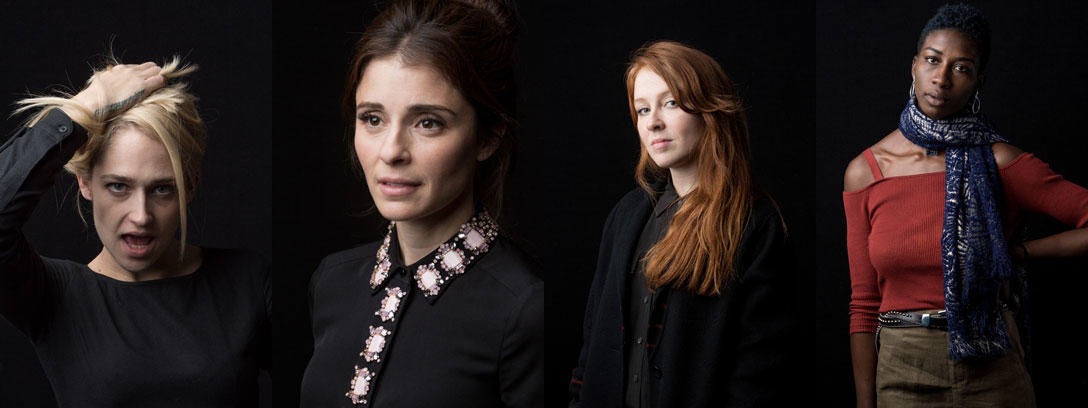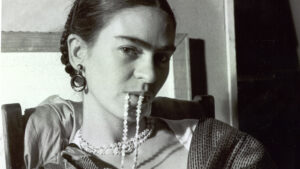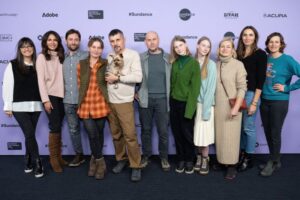© 2017 Sundance Institute | Ryan Kobane
Nate von Zumwalt
The film industry’s gender paradox remains a perplexing one. Its challenges have been expounded through research, combatted with resources, and at least partially rectified through more films made by women—largely presented at independent film festivals throughout the country. But we continue to overlook the voices of women in film at a rate that perpetuates cinema’s homogeneity, particularly when it comes to the box office.
It’s a strangely self-incriminating mechanism—the mainstream industry preaches diversity while eschewing female cinematic voices in favor of male-directed films (4.2% of the 100 top-grossing American films are made by female directors). Most damningly, Hollywood retains its old habits even in the face of an avalanche of talented women filmmakers.
Earlier this year, Sundance Institute announced its fifth class of Women at Sundance Fellows to support emerging and mid-career directors and producers as they strive to create sustainable careers in a highly competitive environment. To celebrate Women’s History Month this March, we went to the creators themselves—including directors, actresses, and producers—to get their thoughts on the need for female voices in film, the boundless nature of gender, and how to support stories both about and by women.

“Whenever you have an art form, it is so important that that medium represent all people. Women make up about 50% of our population, so to not have a diverse female voice making films, you’re not going to get an accurate depiction of how life is lived.” — Anu Valia, writer/director

“We need women’s stories because we’re in a time where we’re having to defend our place in the world. We need our stories to remind ourselves where we’ve been, where we are, and where we’re planning on going.” — Shiri Appleby, actress

“To me, what’s important about filmmaking is being relevant and telling stories that are important. That doesn’t mean they can’t be crazy and wild and full of sex and drugs, but there has to be a point or else it’s a stock market full of plastic products … and so perhaps we say that women storytellers may spiritually be more inclined to tell stories that have more of a philosophy.” — Elizabeth Wood, writer/director, 2017 Women at Sundance Fellow

“Women make the world go round. I think that anywhere you go, if something is happening, somewhere there’s a woman busting her butt to make sure that it happens … It’s time for us to take recognition for that so that little girls can see what the options are, what they can be.” — Sabaah Folayan, documentary filmmaker

“There shouldn’t be one kind of femininity, there shouldn’t be one kind of woman. I’m a strong feminist, but I firmly believe that you can express your femininity or masculinity in any possible way and that we shouldn’t be confined by society telling us we should be a certain way.” —Meredith Hagner, actress

“Who’s going to write the parts for women accurately? We are half of this great world. I think for a long time, men have been writing women and they just don’t know it. I think women write women really well and have a really interesting perspective on the world that still needs to be brought out more.” — Zoe Chao, actress/producer

“We need women storytellers, we need gay storytellers, we need freaks. We need more freaks. Women are part of that group too, and I am proud of that.” — Jemima Kirke, actress

“One of the great storytellers of our time, Margaret Atwood said, ‘You’re never going to kill storytelling because it’s built into the human plan. We come with it.’ Storytelling is a basic human need, which is why women will always find a way to tell their stories regardless of the roadblocks Hollywood puts in front of us.” — Rebecca Green, producer, 2017 Women at Sundance Fellow

“We are smart, we are strong, we are empathic, we are passionate, we give a wildly different perspective on life. What greater gift on the planet than to be a woman, to love women, to cherish women – and the idea of bringing forth life is kind of the coolest thing on the planet.” — Mia Lidofsky, director/producer

“We are more than half the population and our stories are riveting, interesting, and said simply: they matter. We’re awesome! No one can multitask, solve crucial problems, and get on with our day like women.” — Laurens Grant, documentary filmmaker, 2017 Women at Sundance Fellow

“Our stories need to be shared so that other women can find connection and can see themselves and can grow within themselves by seeing non-one-dimensional characters on screen. If we don’t have the stories, it’s kind of like we were never here.” — Celia Rowlson-Hall, writer/director, actress

“I am amazed, in a lifetime of work in film, how long it has taken for this zeitgeist to really start to dig in and for everyone to realize how much better off we would be and how much more fun it would be if everybody could tell their stories.” — Kirsten Johnson, documentary filmmaker

“Making a film about abortion clinics, I learned so much about how [infrequently] women are pushed to the center of stories. My film Trapped put women right at the heart and center, and since then I’ve done two shorts putting women at the heart and center. When you start doing it, you see how infrequently it’s done.” — Dawn Porter, documentary filmmaker

“If you look at the statistics of how many women directors, producers, writers there are in comparison to men – it is astounding. There is an unfortunate inequity in the business and there is a clear need to include more women storytellers. We need more diverse voices. To get the best creative stories we need a wider range of voices being represented. I think as a society and culture we all benefit from a diversity of voices being heard.” — Elyse Steinberg, documentary filmmaker
*All Photos: © 2017 Sundance Institute | Ryan Kobane




